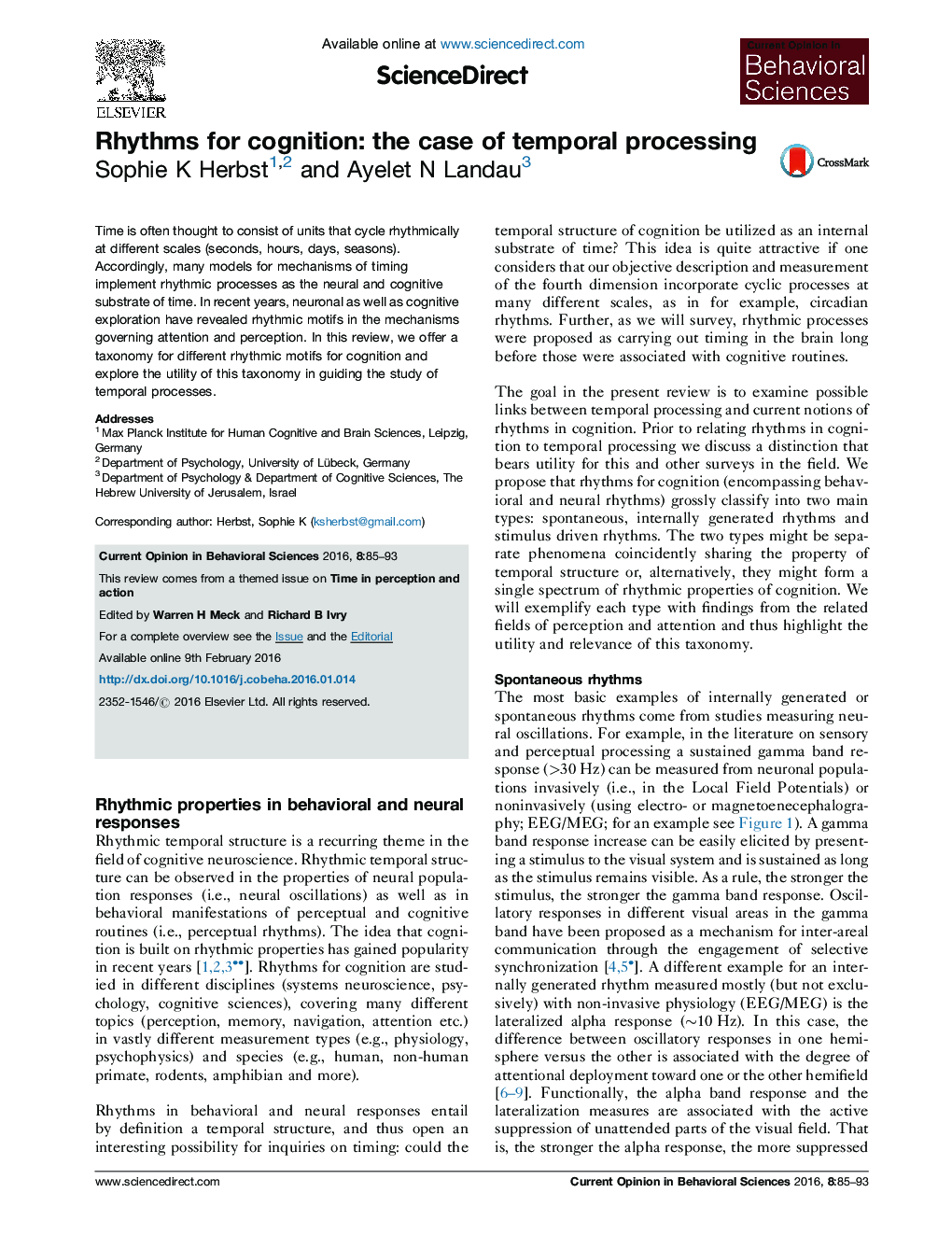| Article ID | Journal | Published Year | Pages | File Type |
|---|---|---|---|---|
| 6260487 | Current Opinion in Behavioral Sciences | 2016 | 9 Pages |
â¢Models for temporal processing often assume rhythmic mechanisms.â¢Rhythms for cognition are an emerging theme in perception and attention.â¢Rhythms for cognition can either be spontaneous or stimulus driven.â¢We discuss temporal processing in the context of rhythms for cognition.
Time is often thought to consist of units that cycle rhythmically at different scales (seconds, hours, days, seasons). Accordingly, many models for mechanisms of timing implement rhythmic processes as the neural and cognitive substrate of time. In recent years, neuronal as well as cognitive exploration have revealed rhythmic motifs in the mechanisms governing attention and perception. In this review, we offer a taxonomy for different rhythmic motifs for cognition and explore the utility of this taxonomy in guiding the study of temporal processes.
